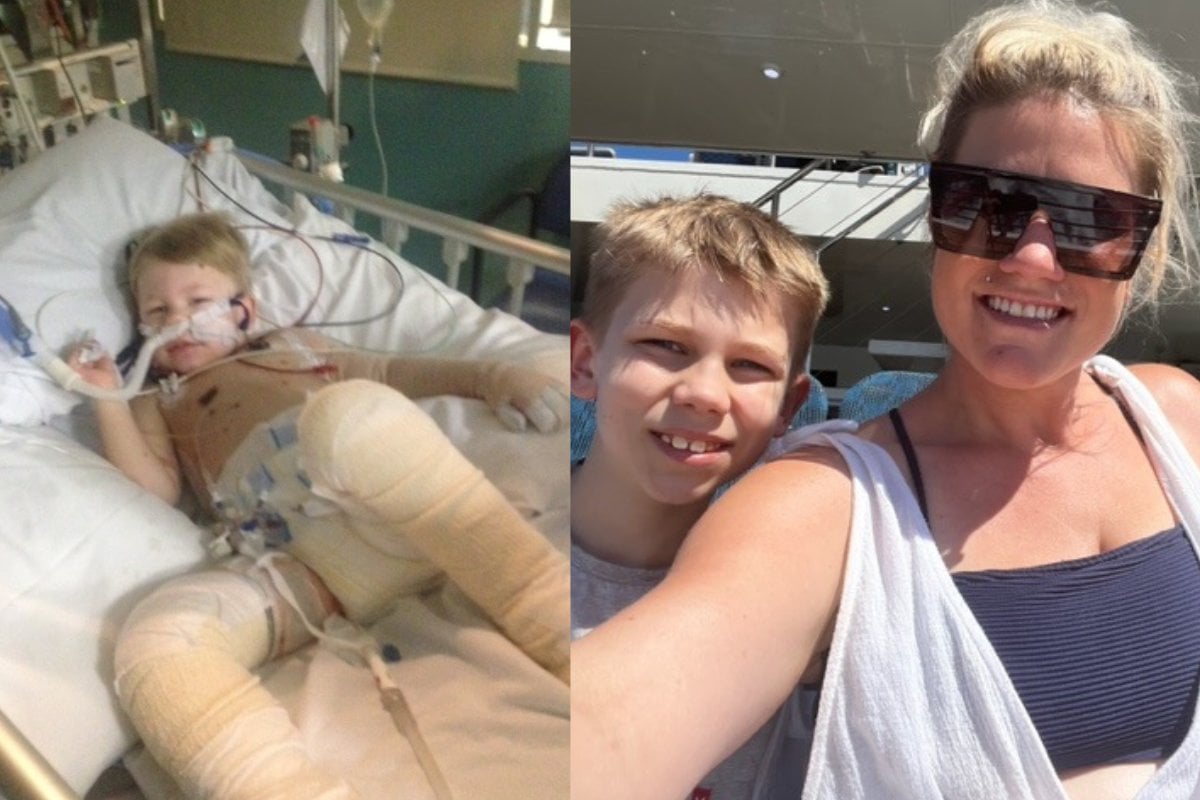
Stephanie Ryder can recall the day meningococcal came into her life with absolute clarity.
Her three-year-old son Chevy woke up his usual bouncy self at six in the morning, only to become increasingly unwell as the day progressed.
"By 8am he was lying on the couch and didn't want to move or eat and he hardly spoke," Stephanie tells Mamamia.
"Chevy's temperature was close to 40 degrees and both Panadol and Nurofen wouldn't bring it down much. He was lethargic, and he began vomiting on and off all day. A home GP visited and explained that it was probably gastro so just to let him rest.
"At 7pm, however, I noticed a handful of tiny purple blotches around his body when I was assessing his temperature and trying to encourage him to have some water. This is when we rushed him to the hospital."
Watch: Kyly Clarke on the signs to watch for with meningococcal. Post continues below.
Chevy was diagnosed with invasive meningococcal disease (IMD), septicaemia (blood poisoning), multiple organ failure and swelling in his brain.



Top Comments